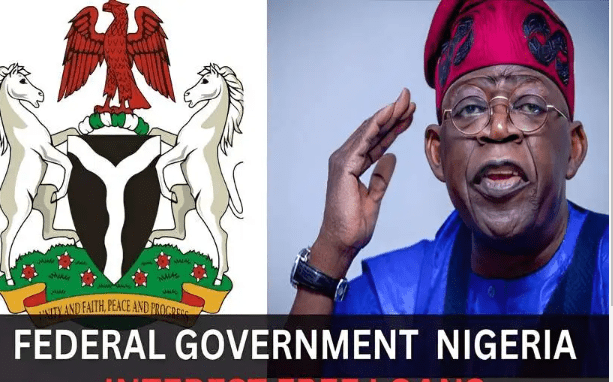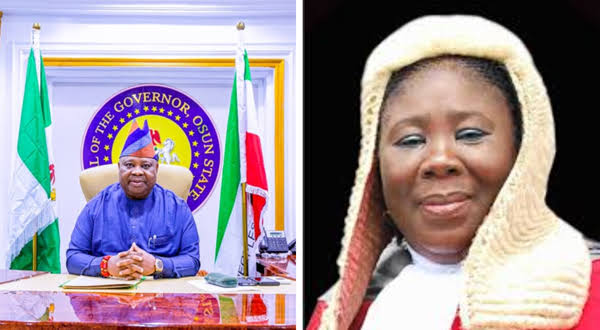Russia shuts down UN watchdog tracking North Korea sanctions

Russia has shut down a panel of UN experts that have for years monitored sanctions against North Korea.
The panel last week said it was probing reports that Russia violated rules by buying North Korean weapons like ballistic missiles for use in Ukraine.
The UN’s Security Council has imposed a series of sanctions on Pyongyang since 2006 for its nuclear weapons programme.
Those restrictions are still in force – but the experts group set up to monitor violations will now be disbanded.
In a Security Council vote on Thursday, Russia used its veto power as a permanent member to block the renewal, while 13 of the other 14 member states present voted for it. China, Pyongyang’s closest ally, abstained.
Russia’s block triggered a wave of condemnation from the US, UK, South Korea and other Western allies and comes after a year of high-profile public meetings between Moscow and Pyongyang leaders.
This is the first time Russia has blocked the panel – which has been renewed annually by the UN Security Council for 14 years.
Ukraine’s Foreign Minister said on social media Russia’s veto was tantamount to “a guilty plea” that it was using North Korean weapons in the war.
The US, UK and France all told the Council that Russia was silencing the watchdog because it had begun to report on Moscow’s own violations of the rules- specifically purchasing weapons from North Korea for the battlegrounds in Ukraine.
Meanwhile, South Korea’s representative at the UN criticised Russia’s “blind self-centeredness” and said it had no justification “for disbanding the guardians” of the sanctions regime.
“This is almost comparable to destroying a CCTV to avoid being caught red-handed,” Ambassador Hwang Joon-kook said.
Russia has consistently denied using North Korean weapons and its representative at the UN again dismissed the accusations on Thursday.
Vasily Nebenzia also argued that the panel of experts had no added value.
“The panel has continued to focus on trivial matters that are not commensurate with the problems facing the peninsula,” said Mr Nebenzia, who also added that sanctions had imposed a “heavy burden” on the North Korean people.
North Korean leader Kim Jong Un and Russia’s Defense Minister Sergei Shoigu visit an exhibition of armed equipment on the occasion of the 70th anniversary of the Korean War armistice
Since 2019, Russia and China have sought to persuade the Security Council to ease sanctions.
The Security Council first imposed sanctions in 2006 in response to North Korea launching a nuclear explosion test, and has since passed 10 more resolutions strengthening them as Pyongyang’s nuclear activity has continued.
However Kim Jong Un’s regime has largely ignored the sanctions- despite their impact on the economy. The North Korean leader has rapidly continued nuclear weapons development and has pursued a more aggressive and dangerous military strategy in recent years.
The UN experts say North Korea continues to flout sanctions through increased missile test launches and developing nuclear weapons. The regime launched a spy satellite this year – with technology believed to have been provided by Russia.
In breach of the sanctions, it also continues to import refined petroleum products, send workers overseas and the UN panel’s most recent report detailed a campaign of cyber attacks.
Bus plunges off South Africa bridge, killing 45

Forty-five people have died in South Africa after the bus they were in plunged some 50m (165ft) off a bridge into a ravine, authorities say.
An eight-year-old girl, the only survivor, was taken to hospital with serious injuries.
The bus crashed through a barrier and caught fire when it hit the ground in the north-eastern Limpopo province.
The passengers were pilgrims travelling from Botswana’s capital Gaborone to an Easter service in the town of Moria.
The vehicle lost control and went off a bridge on the Mmamatlakala mountain pass between Mokopane and Marken, around 300km (190 miles) north of Johannesburg, according to South African public broadcaster SABC.
Rescue operations went on late into Thursday evening, with some of those killed reportedly hard to reach amid the debris.
Transport Minister Sindisiwe Chikunga, who went to the scene of the incident, extended her “heartfelt condolences to the families affected by the tragic bus crash”.
She said the South African government would help repatriate the bodies and hold a full inquiry into the cause of the crash.
“Our thoughts and prayers are with you during this difficult time,” she added. “We continue to urge responsible driving at all times with heightened alertness as more people are on our roads this Easter weekend.”
South Africa has a poor road safety record.
In an Easter message released earlier in the day, President Cyril Ramaphosa urged citizens to “do our best to make this a safe Easter”.
It should “not be a time where we sit back and wait to see statistics on tragedy or injuries on our roads”, he added.
UPDATED: Germany denies reports of sausage dog ban

“Sausage Dogs to be banned in Germany,” screamed headlines in the UK this week.
Germany’s biggest-selling newspaper Bild went full circle, fascinated by the panic: “Brits Fear for the German Sausage Dog.”
The story arose from the German Kennels Association (VDH), which has launched a petition against a draft law that aims to clamp down on breeding that leads animals to suffer.
Will the dachshund or any other breed be banned? The short answer is no.
Under the proposed Animal Protection Act, certain traits would be defined in dogs that can cause “pain, suffering or damage”.
The VDH fears this could lead to a ban on breeding sausage dogs, because their short legs and elongated spine can lead to knee, hip and back problems. Other breeds, such as bulldogs or pugs, which can have breathing problems, could also be targeted, says the association.
“No dog breeds will be banned,” a spokesman for the Green-led agriculture ministry told me bluntly. “We want to prevent breeders from deforming dogs so much, that they suffer.”
The government’s argument is that dog breeds are continually developing and at risk of having increasingly extreme characteristics.
So breeding dogs with specific traits, such as skeletal abnormalities, that lead to suffering, poor health or a short life expectancy, would no longer be allowed. “Just because people find something new or aesthetically pleasing, animals shouldn’t be tormented,” said the ministry’s spokesman.
So-called “torture breeding” has been illegal in Germany for three decades. But until now the law has been vague and open to interpretation.
This new draft would give precise scientific criteria about what sort of breeding can lead to an animal suffering. Existing animals would be able to be kept but would not be allowed to breed or exhibit in shows.
“Torture breeding” is not in the interests of the dog, the owner or the breeder, argues the government, given that everyone wants these animals to live normal, healthy lives.
“There will always be sausage dogs,” the spokesman said. “We will just never see any with legs one centimetre long.”
Dachshunds, which can be translated as “badger dogs”, were bred in Germany for hunting. Their short legs and long body helped them burrow into holes.
Michael Lazaris of Vets on the Common, in London, says many as one in five Dachshunds suffer from intervertebral disc disease because of their elongated spines. Dachshunds can also suffer from chronic hip and knee problems due to their short legs.
Dr Lazaris advises buying puppies from responsible breeders and says that many genetic diseases can be bred out “by not using dogs with those specific health problems”. This is essentially the aim of the new German draft law.
Meanwhile the German branch of animal rights organisation Peta is indeed calling for a ban on 17 breeds, including sausage dogs, pugs and French bull dogs. English bull dogs are also on Peta’s list. An online petition calling for the draft law to include these breeds has almost 70,000 signatures so far.
Later this year the draft version of the Animal Protection Law will be put to the German cabinet and then to the Bundestag, Germany’s parliament.
With key regional elections across eastern Germany in September, there are bound to be more stories about bossy Greens supposedly banning well-loved German traditions. This story has legs.
Harvard University removes human skin binding from book

Harvard University has removed the binding of human skin from a 19th Century book kept in its library.
Des Destinées de l’Ame (Destinies of the Soul) has been housed at Houghton Library since the 1930s.
In 2014, scientists determined that the material it was bound with was in fact human skin.
But the university has now announced it has removed the binding “due to the ethically fraught nature of the book’s origins and subsequent history”.
Des Destinées de l’Ame is a meditation on the soul and life after death, written by Arsène Houssaye in the mid-1880s.
He is said to have given it to his friend, Dr Ludovic Bouland, a doctor, who then reportedly bound the book with skin from the body of an unclaimed female patient who had died of natural causes.

Harvard University explained its decision to remove the binding, saying: “After careful study, stakeholder engagement, and consideration, Harvard Library and the Harvard Museum Collections Returns Committee concluded that the human remains used in the book’s binding no longer belong in the Harvard Library collections, due to the ethically fraught nature of the book’s origins and subsequent history.”
It added it was looking at ways to ensure “the human remains will be given a respectful disposition that seeks to restore dignity to the woman whose skin was used”.
The library is also “conducting additional biographical and provenance research into the anonymous female patient”, the university said.
Des Destinées de l’Ame arrived at Harvard in 1934. Located within the book is a note written by Dr Bouland, stating no ornament had been stamped on the cover to “preserve its elegance”.
“I had kept this piece of human skin taken from the back of a woman,” he wrote. “A book about the human soul deserved to have a human covering.”
A decade ago, Bill Lane, the director of the Harvard Mass Spectrometry and Proteomics Resource Laboratory, told the Houghton Library Blog that it was “very unlikely that the source could be other than human”.
‘An occasional practice’
In its statement, Harvard said its handling of the book had not lived up to the “ethical standards” of care and that in publicising it, it had on occasion used a “sensationalistic, morbid and humorous tone” which was not appropriate.
It apologised and said it had “further objectified and compromised the dignity of the human being whose remains were used for its binding”.
The practice of binding books in human skin – termed anthropodermic bibliopegy – has been reported since as early as the 16th Century.
Numerous 19th Century accounts exist of the bodies of executed criminals being donated to science, with their skins later given to bookbinders.
Simon Chaplin, who in 2014 was head of the Wellcome Library, which holds books on medical history, told the BBC at the time: “There are not a huge number of these books out there, it has been an occasional practice mainly done for generating a sense of vicarious excitement than for a practical motive.
“It generally seems to have been done in the 19th Century by doctors who had access to human bodies for dissection.”
French parliament backs bill against hair discrimination

France has moved a step closer to banning discrimination in the workplace against hairstyles.
A bill has been approved in the National Assembly and will now be debated in the Senate.
The law will bar employers from requiring hair to be straightened and for afros, dreadlocks and braids to be covered.
Its author hopes the law will support those, particularly black people, who have faced workplace hostility.
The bill does not specifically target race-based discrimination, though that is the law’s primary motivation.
It will also protect blondes and redheads, as well as bald victims of what it calls “hair prejudice”.
It was proposed by Olivier Serva, an MP from the French Caribbean island of Guadeloupe, who presented an American study which pointed out that a quarter of black women said they had been ruled out for jobs because of how they wore their hair at the interview.
“People who don’t fit in Eurocentric standards are facing discrimination, stereotypes and bias,” Mr Serva said.
Critics of the bill say existing French law already bans the compilation of personal data about an individual’s race or ethnic background on the basis of the French Republic’s “universalist” principles.
But anti-racism campaigners say the fact that the bill does not include the term “racism” is problematic, given many including public figures have faced negative comments online because of the way their natural hair looked.
They say that the main targets of hair discrimination are black people.
Daphne Bedinade, a social anthropologist, told Le Monde newspaper: “To make this only about hair discrimination is to mask the problems of people whose hair makes them a target of discrimination, mostly black women.”
A journalist from Guadeloupe, Guylaine Conquet, who worked for French television in the Caribbean island, said she had always been told by people that to look professional, she had to wear straightened hair.
She told Radio France International: “In 2015 I decided to go back to natural, which was very hard for me. Because I wasn’t used to my natural hair, which is weird.”
Ms Conquet said that her audience was also not used to her natural hair, adding, “they were looking at me, they were sending me messages – you know, it’s not attractive, why am I doing that… So there was a lot of pressure”.
In 2022, a black Air France crew member, Aboubakar Traoré, won a 10-year legal battle for the right to work with braided hair on flights after a decision by France’s highest appeals court.
The court however ruled on the basis of gender, given his female counterparts were allowed to wear braids.
Climate change could affect timekeeping— Study reveals

Climate change is affecting the speed of the Earth’s rotation and could impact how we keep time, a study says.
Accelerating melt from Greenland and Antarctica is adding extra water to the world’s seas, redistributing mass.
That is very slightly slowing the Earth’s rotation. But the planet is still spinning faster than it used to.
The effect is that global timekeepers may need to subtract a second from our clocks later than would otherwise have been the case.
“Global warming is already affecting global timekeeping,” says the study, published in the journal Nature.
Coordinated Universal Time (UTC) – which is used by most of the world to regulate clocks and time – is calculated by the Earth’s rotation.
But the Earth’s rotation rate is not constant and can therefore have an effect on how long our days and nights are.
Changes to the planet’s liquid core have meant the Earth has been spinning slightly quicker.
Since the 1970s, to correct for this, about 27 leap seconds have been added to the global clock, with timekeepers planning on subtracting a second for the first time in 2026. This is known as a “negative leap second.”
However, the study finds that ice melt caused by climate change has partly offset that acceleration.
Ice sheets are now losing mass five times faster than they were 30 years ago, meaning that the negative leap second change will not be needed until 2029, the study suggests.
“It’s kind of impressive, even to me, we’ve done something that measurably changes how fast the Earth rotates,” Duncan Agnew, the author of the study, told NBC News.
“Things are happening that are unprecedented.”
The negative leap second has never been used before and, according to the study, its use “will pose an unprecedented problem” for computer systems across the world.
“This has never happened before, and poses a major challenge to making sure that all parts of the global timing infrastructure show the same time,” Mr Agnew, who is a researcher at the University of California, San Diego told AFP news agency.
“Many computer programs for leap seconds assume they are all positive, so these would have to be rewritten,” he added.
There has been some scepticism of the study, however.
Demetrios Matsakis, former chief scientist for time services at the US Naval Observatory, told AFP that “Earth is too unpredictable to be sure” if a negative leap second would be needed any time soon.
Human activities like burning fossil fuels are causing world temperatures to rise.
That temperature rise is having a huge effect on the environment, including the rapid melting of glaciers and ice sheets.
Fallen ‘Crypto King’ Sam Bankman-Fried gets 25 years for fraud

Sam Bankman-Fried, co-founder of the failed crypto exchange FTX, has been sentenced to 25 years in prison for defrauding customers and investors of his now-bankrupt firm.
The ruling cements the downfall of the former billionaire, who emerged as a high profile champion of crypto before his firm’s dramatic collapse in 2022.
He was found to have stolen billions from customers ahead of the failure.
Bankman-Fried’s legal team will appeal against his conviction.
A message from his parents shared with the BBC by a representative for Bankman-Fried said: “We are heartbroken and will continue to fight for our son.”
Earlier, the 32-year-old said in court he knew “a lot of people” felt “really let down”.
“I’m sorry about that. I’m sorry about what happened at every stage,” he said, speaking quietly and clearly ahead of his sentencing.
FTX was one of the world’s largest crypto exchanges before its demise, turning Bankman-Fried into a business celebrity and attracting millions of customers who used the platform to buy and trade cryptocurrency.
Rumours of financial trouble sparked a run on deposits in 2022, precipitating the firm’s implosion and exposing Bankman-Fried’s crimes.
He was convicted by a New York jury last year on charges including wire fraud and conspiracy to commit money laundering, after a trial that detailed how he had taken more than $8bn (£6.3bn) from customers, and used the money to buy property, make political donations and put toward other investments.
Before reading the sentence on Thursday, Judge Lewis Kaplan provided a harsh assessment of Bankman-Fried’s behaviour, saying he had lied during his testimony at trial when he claimed he was unaware until the last minute that his companies were taking money entrusted to them for safe-keeping by customers and using it for other purposes.
“He knew it was wrong. He knew it was criminal. He regrets that he made a very bad bet about the likelihood of getting caught but he’s not going to admit a thing,” the judge said.
Though Bankman-Fried had made “protestations of sorrow” about customer losses, he had uttered “never a word of remorse for the commission of terrible crimes”, he added.
While 25 years constitutes a serious prison sentence, it is far less than the more than 100 years Bankman-Fried could have received under official government guidelines.

Federal prosecutors in New York this month told the judge such a long term was not necessary.
But they requested at least 40 years, arguing that Bankman-Fried had committed a massive fraud, while showing “brazen disrespect” for the law.
Bankman-Fried’s team had argued for a lighter sentence of roughly five to 6.5 years.
They said that he was a non-violent, first-time offender, and pointed to mental health struggles and argued that customers were poised to recover significant sums under a plan currently working through bankruptcy court.
“The victims want their money back and they should get it,” his lawyer, Marc Mukasey, argued in court on Thursday morning. “Sentence him to work hard and give it all away.”
Former federal prosecutor Mitchell Epner, now a lawyer at Rottenberg Lipman Rich, said he was “very surprised” by the ruling, noting that Bankman-Fried could potentially be released from prison in about 13 years.
But Jennifer Taub, a law professor at Western New England University and expert on white-collar crime, said she thought the length of the sentence was appropriate.
“It is the right balance between how old he is and what is the purpose of deterrence,” she said.
In his sentencing remarks, Judge Kaplan said what could amount to a life sentence was unnecessary but that Bankman-Fried must receive a punishment sufficient to prevent him from committing future crimes.
“There is a risk that this man will be in a position to do something very bad in the future and it’s not a trivial risk, not a trivial risk at all,” he said.
He also ordered Bankman-Fried to forfeit $11bn that can be used to compensate victims.
The government has already seized some of those assets, such as shares Bankman-Fried owned in Robinhood, the trading app which raised more than $600m when they were sold last year.
Bankman-Fried showed little visible reaction to the ruling.
Bankman-Fried has admitted to mistakes of mismanagement, but maintained that he was acting in good faith.
In his comments ahead of the sentencing, he stuck to his story that FTX had the holdings to repay customers at the time of its collapse and said he did not think that reasons behind customer suffering had been “properly told”.
“They’ve been failed by more people than I can count” including himself, he said, speaking of the exchange’s customers. “It’s been excruciating to watch.”
Bankman-Fried said he was sorry for disappointing not only customers but also former employees, including top lieutenants Caroline Ellison and Gary Wang, formerly close friends who testified against him at trial and whom he praised in his remarks.
“They all built something really beautiful, they threw themselves into it and then I threw it all away,” he added. “It haunts me every day.”
Dozens of people, including former FTX customers, family, friends of his parents and complete strangers, had submitted letters to the court, trying to sway the outcome.

Louis Dorigny of California, who had been an FTX customer said it was a “bittersweet moment for creditors”.
“I don’t wish jail time on anybody, and 25 years is a very, very long time to be in prison, but it does nothing to compensate the victims for the loss of their cryptocurrency,” he said.
Samuel Hapak, chief executive of crypto trading fund Wincent, whose firm represented 200 investors with millions of dollars at FTX when it entered bankruptcy, told the BBC that he thought the ruling was “fair”.
“Twenty-five years is a lot and I believe that this sounds like a reasonable signal to the industry that it needs to step up the game,” he said.
Judge Kaplan said he would not recommend Bankman-Fried serve his sentence in a maximum security prison because the court had no reason to believe he posed a threat of violence.
He said he was also taking into account concerns raised by his lawyers and parents that Bankman-Fried’s social awkwardness stemming from autism spectrum disorder would make him vulnerable in prison.
Bankman-Fried’s case has been closely watched by other crypto executives and firms facing charges.
But he is not the first player in the industry to be sentenced.
Karl Sebastian Greenwood, who worked with “Cryptoqueen” Ruja Ignatova, was sentenced to 20 years in prison last year for his role convincing millions of people to invest more than $4bn in a fraudulent currency, OneCoin.
His case also drew comparisons to Bernie Madoff, who was setenced to 150 years in prison after being found guilty of a $64bn Ponzi scheme.
Former federal prosecutor Marc Litt, who worked on the the case against Madoff and is now a lawyer at Wachtel Missry, said he saw big differences between the two fraudsters, noting Madoff was older when sentenced, had committed his crimes over several decades, stolen from people he knew well and had no one step forward to testify to his character.
“The court implicitly took those sorts of differences into consideration and I believe that the resulting lower sentence was both warranted and is unlikely to be disturbed on appeal,” he said.
Jacob Zuma barred from running in South Africa election

Former President Jacob Zuma has been barred from running in South Africa’s general election in May.
The country’s electoral commission, or IEC, has not given a reason.
However, his 2021 conviction and jailing for contempt of court would appear to disqualify him.
His backing of the new uMkhonto we Sizwe (MK) party has been seen as a possible threat to the governing African National Congress (ANC), which has suspended Mr Zuma.
The 81-year-old served as president from 2009 until 2018, when he had to step down because of corruption allegations.
Mr Zuma’s new party is named after the ANC’s former military wing, and he sees himself as the true heir to the governing party’s revolutionary roots.
The ANC had wanted South Africa’s electoral body to deregister MK, but that request was rejected on Tuesday.
Mr Zuma has been leading the MK party’s campaign and was the first name on their candidate list, but the electoral commission received objections to him potentially becoming a member of the National Assembly.
Rather than voting directly for a president, South Africans elect members of the National Assembly. The head of whichever party gains a majority then becomes the country’s leader.
“In the case of former President Zuma, yes, we did receive an objection, which has been upheld,” said electoral commission head Mosotho Moepya on Thursday.
“The party that has nominated him has been informed,” Mr Moepya told journalists.
Mr Zuma has until 2 April to appeal against the decision.
MK spokesman Nhlamulo Ndlhela told AFP news agency the party was “looking at the merit of that objection but we will of course appeal it”.
The former president received a 15-month prison sentence in 2021 for contempt of court and the constitution says anyone who has had a prison sentence of longer than 12 months is not eligible to run for election.
Mr Zuma is also facing charges of corruption over a multi-billion-dollar arms deal from the 1990s, when he was vice-president.
The IEC said that the ruling did not prevent the MK party from taking part in the 29 May poll, News24 reports.
For the first time since the start of the democratic era in 1994, the ANC’s vote share could fall below 50%, according to several opinion polls. The MK party is seen as popular in Mr Zuma’s home region of KwaZulu-Natal.
Biden hosts star-studded NYC fundraiser with Obama and Clinton

US President Joe Biden hosted a record-breaking election fundraiser in New York City, alongside his predecessors Barack Obama and Bill Clinton.
His team said the star-studded evening at Radio City Music Hall would raise over $25m (£20m) for the campaign – a record for a single political event.
They are looking to extend a growing cash gap between the president and his Republican challenger Donald Trump.
Polls suggest the race for the White House rests on a knife edge.
Some of those in attendance, such as Senate Majority Leader Chuck Schumer, were sure to make those election stakes clear to the raucous crowd of 5,000 Democrats. The New York senator told them they must do whatever they could to ensure that the “dishonest, chaotic, ineffective regime of Donald Trump” did not return.
Comedian Mindy Kaling hosted the event and spoke just moments after singer Lizzo finished a rendition of her hit About Damn Time. Other stars such as Queen Latifah and Cynthia Erivo also took the stage.
But the longest standing ovation was saved for the moment when the three presidents – Mr Biden, Mr Obama and Mr Clinton – came out.
Chants of “four more years” echoed throughout the auditorium for Mr Biden.
“Three presidents… and none of them are here to go to court,” joked comedian Stephen Colbert, alluding to Mr Trump’s legal troubles.
Stephen Colbert moderates a discussion with presidents Biden, Obama and Clinton.

The late-night comedy host then moderated a conversation between the three presidents.
Mr Biden began with an oft-repeated slogan, saying democracy was at stake in this election. He said Mr Trump had a “perverse view of the world”, noting his opponent’s vocal support of those who participated in the 6 January Capitol Riot and his buoying of authoritarian leaders abroad.
“But I’m really hopeful,” the president added. “If we get by this election, we can set the course for the next four, five, six decades.”
Mr Obama, for his part, touted Biden’s legislative victories. He said the president had done everything from reducing the cost of medicine to creating jobs – particularly for African Americans.
He added that Mr Trump, the presumptive Republican nominee, and his supporters seemed “increasingly unconcerned with the essence of America”, which he said was centred on the idea of “bridging our differences and moving forward”.
Mr Clinton, meanwhile, accused Mr Trump of “stealing a few good years” from the back of Mr Obama’s administration and somehow claiming “overnight” successes.
The four men ended their time on stage by putting on aviator sunglasses in an impression of Mr Biden, which earned a standing ovation.
First Lady Jill Biden was due to host a private after-party for 500 guests. The president’s son, Hunter Biden, and his family were to attend.
The tickets were priced between $225 and half-a-million dollars. For $100,000, guests could get a picture with Mr Biden, Mr Obama and Mr Clinton, with star photographer Annie Leibovitz taking the snaps.
While the three presidents were on the same page during their time on stage, the event did not pass without incident.
Protesters who condemn Israel for its invasion of the Gaza Strip gathered outside Radio City Music Hall to call for a ceasefire. Some were able to interrupt the event inside the theatre as well.
Mr Biden quickly took up the issue over the shouts of the protesters and to the applause of the crowd.
“There has to be a two-state solution, a progression,” he said. “But I’m confident that can be done with Israel’s integrity… preserved.”
Protesters outside of Radio City Music Hall, where President Joe Biden held a star-studded fundraiser.

Mr Biden’s two predecessors backed him, with Mr Obama chiding the protesters by saying that they “can’t just talk and not listen – that’s what the other side does”.
The Israel-Gaza war is one of the issues that has been dragging down Mr Biden’s approval rating. Voters are also unhappy about the economy, inflation and immigration.
Facing lagging approval ratings, the 81-year-old has worked to capitalise on momentum following his well-received State of the Union Address earlier this month.
Thursday’s event comes after a Biden campaign blitz in battleground states and could prove pivotal in November’s vote.
There are clear financial results. The Biden campaign recently declared it had $155m cash on hand, which it said was the biggest war chest any Democratic candidate had ever possessed at this point in an election cycle.
Mr Trump and his political action committees reported having $74m.
The president’s fundraising lead over Mr Trump – who is seeking a return to the White House four years after his presidency ended – has been boosted by the advantage of incumbency, experts say.
“Biden raising a lot of money is probably a function of him not having any real primary challengers,” Joseph Campbell, a communications professor at American University, told the BBC. “There’s no competition for Democratic donor money.”
Mr Trump’s campaign and his joint fundraising committee – which have helped pay the former president’s legal bills – brought in $20m in the whole of February, less than what the Biden campaign expects to receive just from Thursday’s event.
While Mr Biden has been criss-crossing the country in recent weeks, Mr Trump has kept a lower political profile as he juggles court appearances.
But he also appeared in the New York area on Thursday, attending the wake of a police officer, Jonathan Diller, who was shot and killed in the line of duty. His campaign contrasted his attendance at the wake with Mr Biden’s decision to attend “a glitzy fundraiser in the city with their elitist, out-of-touch celebrity benefactors” alongside Mr Obama and Mr Clinton.
President Biden was joined on the Air Force One flight to New York by Mr Obama, who remains close to his former vice-president.
New York ground to a halt for their arrival as the two men’s huge motorcade cut across Manhattan in the pouring rain as hundreds of onlookers jostled to take pictures ahead of the fundraiser.
Mr Trump, 77, blasted the Democratic event in a fundraising campaign email on Thursday morning.
“Hundreds of deranged Hollywood liberals will be in attendance, and they will open their wallets to fund the destruction of this country!” the message said.
Mr Biden’s campaign has spent tens of millions on TV and digital advertising targeting black and Latino voters, as the president seeks to hold together the coalition that put him in the White House in the 2020 election.
Some opinion polls have suggested that loyalty among these key voting blocs could be softening, though recent surveys show the president’s approval could be beginning to rebound.
The 2024 presidential election cycle is predicted to be the most expensive in history, with an estimated $2.7bn spent on presidential campaign ads alone.
Gangster-politician Mukhtar Ansari dies dies after cardiac arrest

A gangster-turned-politician has died of cardiac arrest in the northern Indian state of Uttar Pradesh, authorities said on Thursday.
Mukhtar Ansari, the 63-year-old, five-time lawmaker from the state, had been in jail in since 2005.
The circumstances of his death are disputed by his family who say he was given a “poisonous substance” in jail.
Police tightened security in the state as crowds thronged outside Ansari’s home after the news of his death.
Ansari, who ran his own gang in the 1990s, had more than 60 criminal cases against him, 15 of which included murder charges.
He joined politics and won his first state election in 1996 in his home constituency of Mau. He remained a lawmaker from the seat till 2022.
In April 2023, he was convicted for killing Krishnanand Rai, a lawmaker of the ruling Bharatiya Janata Party (BJP), and sentenced to 10 years in prison.
He received a life sentence earlier this month for a 1990 case involving fake arms licenses.
On Thursday, jail authorities in Banda district said Ansari was taken to hospital after he complained of vomiting.
“The patient was provided immediate medical care by a team of nine doctors,” a medical bulletin by the Rani Durgavati Medical College said. “But, despite their best efforts, he died due to a cardiac arrest.”
Gangester turned Politician Mukhtar Ansari taken out from district court ifor money laundring case , in Allahabad on December 28,2022.

Ansari’s brother Afzal Ansari, an MP from the state, alleged that he was poisoned.
“Mukhtar said that he was given a poisonous substance in food in jail,” Mr Ansari told reporters on Thursday.
“This happened for the second time. Around 40 days ago also he was given poison. And recently on 19 March and 22 March , he was again given this [poison] due to which his condition deteriorated.”
Ansari had been hospitalised on Tuesday after a fall in the washroom, according to jail authorities.
He was initially treated in jail and then taken to the hospital for further treatment and discharged after 14 hours, they said in a statement.
On Thursday, following the announcement of Ansari’s death, Uttar Pradesh police issued curfew orders in the state and held flag marches in certain parts.
Ansari’s son Umar Ansari said he learnt the details of his father’s deteriorating health through media reports and had received no information from authorities before his death.
“Two days ago, I came to meet him, but I was not allowed [to],” he said.
Ansari’s post-mortem will be carried out on Friday.






